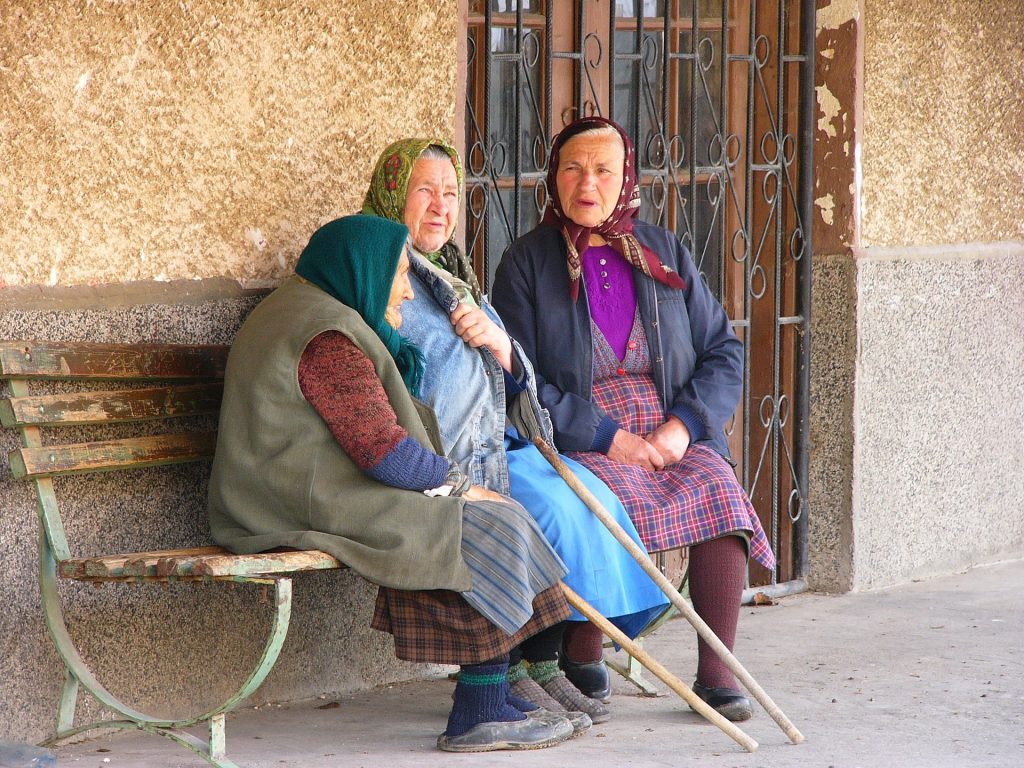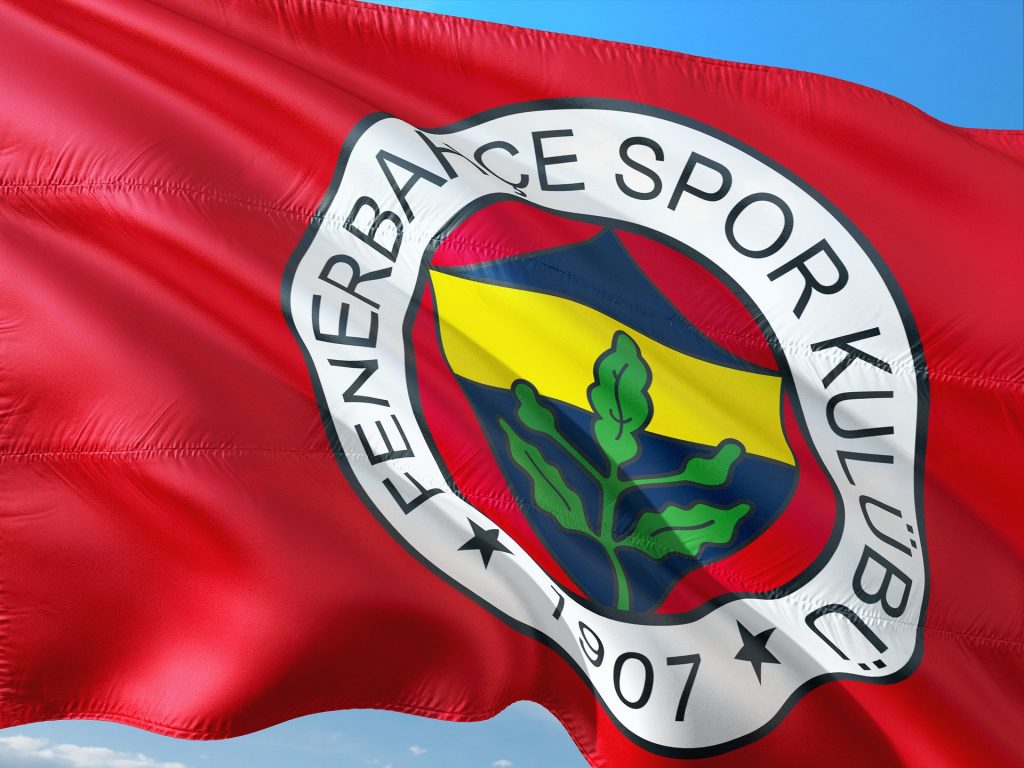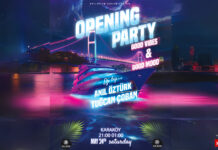Just a few minutes after saying goodbye to Enes, I met some truckers eating breakfast by the side of the road. They invited me to join them. I declined, saying I had just eaten.
“I read about you in the paper,” one of them said. “Could be. Thanks for the breakfast offer, afiyet olsun (bon appetit),” I told him as I resumed walking.
As the day wore on I entered Aydın, a larger city of 191,000 people where I’d planned to stay the night. I felt like a hick. This was my third day on the road and already the noise and grime of a larger city overwhelmed me. I stopped at a restaurant for some ızgara köfte (grilled meatballs), and, although I was overwhelmed by the big city, I relished the opportunity to eat my meal incognito, not having to let worries about politeness restrain me from greedily grabbing the last piece of cheese or cleaning out the rice dish. Oh, I thought, the joy of eating unconcerned about abusing one’s host’s hospitality, eating him out of house and home.
After my lunch I was so full I could have cried.
Later in the day I took a break from the sun at a mosque east of Aydın. I sat down in the shade on one of the wood slat benches in the garden to rest. It was hot and I was tired. I’d been considering staying at this mosque. The garden was partly tiled over but not completely like the garden back in Erbeyli. There were patches of dirt and grass, so I’d have a place to sleep. I sat waiting for someone to come by. No one did. It was too early to camp, though, and I figured it would be best to move on.
Sitting in the shade though, I was too comfortable to move on so easily. So I sat for a while longer. I killed some time reflecting on a theory I had begun to develop, about the size of a village and how it affects the fortunes of a foot traveler. In general, I had been finding that I seemed to do better in villages of less than 5,000 people. Even better were villages of less than 3,000 people. There, the pace of living is significantly slower and the residents seem even more likely to engage a stranger in conversation. In a small village it is easier to find the people you need in order to get an invitation to stay.
Eventually, at about 5 p.m., I stood up, pulled on my pack and resumed my walk east. I would be able to walk another hour or two.
After about an hour I came to a village of about 2,000 people called İmamköy and decided I would try to stay there for the night.
As I crossed the railroad tracks to exit the highway and enter the village, I came alongside a group of women coming home from work in the fields. When they saw me they scattered, averting their eyes. In fact, as soon as I walked into the village all the women seemed to disappear. There was not a single woman in sight in the whole town. I realized then that this village would probably be more conservative than Erbeyli.

Shortly after entering the village I saw a bakkal (market) where I could stop and say hello. Outside the bakkal was a little tea garden where a few elderly men sat at tables drinking tea and talking. I poked my head into the bakkal and asked if it was okay if I sat down and got a drink of water. The bakkal owner answered, “Sure, sit down. Have some water.”
I bought a bottle of water, set my pack on the ground, and pulled up a chair beside some of the men. After we had made small talk for about twenty minutes, the bakkal owner joined us at the table. He seemed a bit standoffish toward me, and it felt like he was saying, just wait a few minutes and let us get to know you before you get too friendly here.
I started to get nervous. I felt like I was having to audition for a role as a homeless person. And while I completely understood the need for getting to know a person who might be staying in one’s village, daylight was burning and if the answer was going to be no I needed to get moving. I tried telling myself, okay trust in the universe and give it a little time with these people and things will turn out fine.
But I couldn’t help myself. I blurted out, “Is it okay if I stay in the village tonight?” and gave my usual spiel: “I’ve got everything I need. I’ve got my backpack. I’ve got my tent. I’ve got my sleeping bag. All I need is a space to set it up.”
He looked at me closely and said, “Why don’t you sit a little longer and then we will make a decision.” The other men just looked at me silently.
I was surprised that the atmosphere in İmamköy could be so different from a village just 20 kilometers away, where I’d been welcomed so readily.
İmamköy suddenly felt empty, gray, and lifeless. Other than myself and these elderly men and the bakkal owner, there was no one in sight. I supposed the younger men were still out in the fields working — the women, too, aside from those who’d arrived in the village at the same time I had. And those women were nowhere to be seen.
There was still some daylight, though, so I sat around with these guys drinking tea. Since it was fig harvest time, trucks filled with flats of figs were coming in and out of the village. I watched the regular delivery trucks as they came by. I watched one truck go by with farm workers headed out to a field and another truck going by loaded with figs, heading for the wholesale market.
Then a truck came through and stopped in front of the bakkal to sell watermelons out of the back of the truck. A few of the villagers appeared on the street to buy some.
The driver of the truck noticed that I was sitting outside the bakkal watching. He picked up a long knife and slit one of the watermelons in half. He walked over to me. “Here, have some watermelon,” he said and handed me one of the halves. I savored each bite and let the juice run down my throat and my arms.

When it began to get dark, farmers began returning to the village and the men I had been sitting with scattered to go back to their homes. Soon it was just the bakkal owner and I sitting in front of the bakkal. But his son, who was about ten, soon rode up on his bike with a few other village boys his age. It was getting on toward dinner time.
The bakkal owner called his son over to us and asked him to run upstairs and have his mother prepare some extra food. The family home was above the bakkal. The owner and I would be dining outside that night.
I asked the bakkal owner again if I could stay at the mosque, which was just across the street. He said, “Well it’s unkempt. We don’t take very good care of it. So let’s find you another space.”
I assumed he meant I was unwelcome there in the village, and that I would need to move on to the next village. It was already well after dark, too late to move on, so I felt on edge, nervous that he might not let me stay there.
Then I heard the bakkal owner telling his son, who was still standing by us, that after he talked to his mother about dinner he was to take his friends and go clean out the very dirty storage room next to the unkempt mosque. “We’ll put the yabancı in there for the night,” he said in Turkish.
He turned to me, shrugged apologetically, and said that there was no electricity in the room and that there was a thick layer of dust over everything. However, there was also no clutter in the room. I breathed a sigh of relief, knowing that I’d have a place to stay that night, regardless of how dusty it might be.
So the kids went into the storage room, swept out the dust and sprayed down the floor with a hose. Then the son said to me, “Okay, it’s clean now. You can go in and get set up.”
The room was very warm and wet and humid from being sprayed down. Bedding down in it felt like bedding down in a swamp. Since there was no electricity I set up my camp in complete darkness.
Soon the bakkal owner came out to get me for dinner, and we dined on green beans cooked in a tasty tomato sauce, a cucumber and tomato salad, and olives. We sat at a rickety table out in the open garden across from the bakkal and next to the mosque. His son appeared once in awhile to see if we needed anything from the house.
After dinner the bakkal owner went back inside to take care of his family, and the neighborhood boys came out to play a game of football (soccer) in the street. When they saw that a foreigner was sitting at the table, they came over to me and started asking questions about football. They wanted to know which was my favorite team and which players I liked. Since they were rabid football fans, they knew the names of many of the players and they wanted to know about my favorite team and players.
I told them my favorite team was Fenerbahçe, which is one of the two biggest teams in Turkey. As soon as I said Fenerbahçe their eyes lit up. They said, “Oh, we love Fenerbahçe, too,” and they started listing names of players. Immediately the conversation was out of my league, since I don’t really care about football, or any organized sport for that matter. But I know that the fastest way to kill a conversation in Turkey is to say you don’t care about football, so I just smiled and let them fill my silence with their excitement.

After 15 minutes of discussing football, we played a card game which I didn’t really understand. One of the boys was glad to sit next to me and actively play cards while I pretended to learn what was going on. When it was 10 p.m. I said, “Okay, it’s about time for me to go to sleep. I’ve got to get up early and start walking tomorrow.” The kids kept playing until midnight.
The bakkal owner had been right about the mosque grounds being unkempt. As in my room, the area around the mosque was completely dark, and I stumbled my way through the litter and debris to find the bathroom next to the mosque. Though I’d taken it personally at first, thinking the bakkal owner didn’t want me in the village, I could see he’d had good reason to suggest I sleep somewhere else. This was downright dangerous.
After stumbling my way back out of the bathroom and fumbling my way into my sleeping bag in the storage room, I fell asleep to the sounds of the boys outside playing. I was still sweating. My sleeping bag was made for -20 degrees Fahrenheit, and even though it was completely open and I was laying on top of it, I was still hot.
Tuesday, 4 September
At 6:30 a.m. I was awakened by the sound of the steel door in front of the bakkal being rolled open by the the owner. I wanted to get out of the village pretty quickly, because I wasn’t feeling very welcome. So I hurriedly stuffed my things in my pack and walked out of the storage room.
I poked my head into the market to say goodbye and had a rare woman sighting. The man’s first customer of the day was one of the village women who had come down for supplies for the morning. But I knew from the code of ethics in the village not to make eye contact or say hello. So I just said to the bakkal owner, “Thank you very much for your hospitality,” and gave him my contact information. I walked the 200 meters out to the main road and took the morning picture of my whiteboard with that day’s dedication.
As I walked away I thought about the strange lifelessness of İmamköy. I thought of the abandoned mosque. I thought of the women coming in from the fields the day before, turning their eyes away from me. I wondered how it would feel to be born a girl there and have to avert my eyes and to have it determined for me that my life was pretty much out of my control.
I contrasted that with Erbeyli, just 20 kilometers away. Enes was an imam but not like the bearded holy men I’d imagined imams to be. He wore jeans and polo shirts and got drunk. He had fun and talked about girls. I couldn’t imagine women in his city averting their eyes in the presence of men. It was a village where people danced at weddings and had fun. It was a village where girls rode bicycles and greeted strangers. It was a village that had made me feel welcome.
I felt uncomfortable and disoriented as I realized that whatever I’d thought would be true of any given place was probably 95% wrong, whether it be about imams, or women in the villages, or people being friendly and hospitable in the west of Turkey and conservative terrorists in the east. Maybe this was how it would be for the months ahead of me. I was going to have to live with that disorientation, allowing the world to present itself to me as it was and not as I thought it was or should be. I’d have to be born a dumb-ass anew each day.
—
In 2012, Matt sold off or gave away almost everything he owned. He strapped whatever was left to his back, flew to Turkey, and walked across it. Every foot, from one end of the country to the other. Along the way he slept in mosque gardens, dined with strangers, and stumbled into refugee camps.
This is the story of that journey. We’ll be publishing one chapter each week from his book. If you would like to read the whole thing at once, you can purchase his book titled Heathen Pilgrim: Walk Across Turkey on Amazon.










